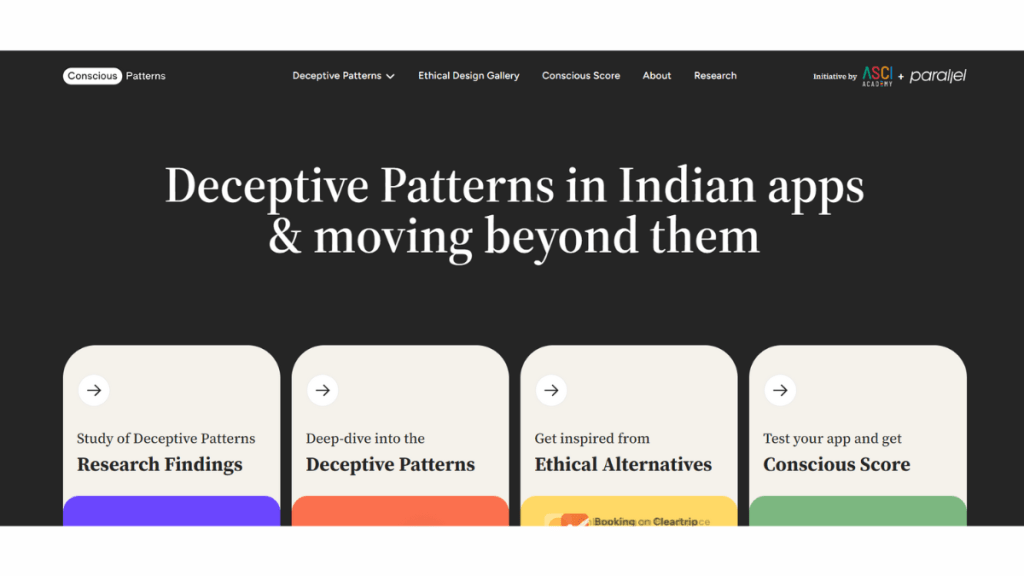In a report released by ASCI Academy in collaboration with Parallel HQ, it was revealed that 52 out of 53 of top apps in India use deceptive patterns. From what is understood, the report analysed over 12,000 screens from 53 apps across nine industries, identifying an average of 2.7 deceptive patterns per app. The report identifies 12 distinct deceptive patterns, including privacy deception, interface interference, drip pricing, and false urgency, which are reportedly used in online interfaces. Privacy deception emerged as the most prevalent deceptive pattern, observed in 79% of the apps analysed.
“Deceptive patterns harm consumer trust and transparency in the digital ecosystem. With just the top 53 apps being downloaded over 21 billion times, the consumer exposure to deceptive patterns across apps, websites, and other digital interfaces is mind-boggling. We urge organisations to follow conscious design principles that protect the consumer’s right to make an informed choice. The gallery of inspiration and the score calculator are important resources for organisations that wish to get it right. We are extremely grateful to Parallel for being our knowledge partner and to Nasscom for supporting us in the wide dissemination of these findings and resources.” Manisha Kapoor, CEO and secretary general, ASCI, said.
As per the report, the apps surveyed were downloaded over 21 billion times, underlining the potential consumer impact of the deceptions. The three sectors with the highest deceptive patterns per app were health-tech at 8.8, travel booking at 7.2, and e-commerce at 5.3. Furthermore, all the e-commerce apps that were surveyed were shown to be made in a way that was difficult for users to delete their accounts. Four out of five health tech apps relied on creating time based pressure in order to pressure users into making decisions. The lowest incidences of deceptive patterns per app were observed in streaming services at 1.8 and in the gaming sector at 2.4.
“As tech professionals deeply committed to design, at Parallel we understand the profound impact ethical practices have on user experiences. Our research uncovers the subtle yet widespread presence of deceptive patterns in Indian apps, highlighting the need for a shift towards more transparent design practices.” Robin Dhanwani, founder, Parallel, said.
